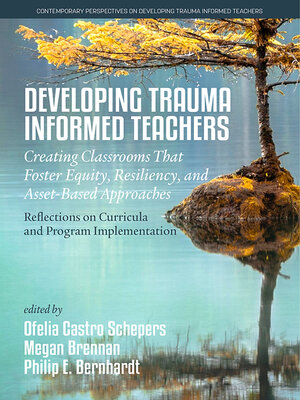Developing Trauma-Informed Teachers
ebook ∣ Creating Classrooms that Foster Equity, Resiliency, and Asset-Based Approaches · Contemporary Perspectives on Developing Trauma Informed Teachers
By Ofelia Schepers

Sign up to save your library
With an OverDrive account, you can save your favorite libraries for at-a-glance information about availability. Find out more about OverDrive accounts.
Find this title in Libby, the library reading app by OverDrive.



Search for a digital library with this title
Title found at these libraries:
| Library Name | Distance |
|---|---|
| Loading... |
Trauma is a public health crisis. High rates of trauma exposure among youth and the impact that experiences of trauma can have on students' psychosocial and academic outcomes are well-established. These traumatic events do not live outside of the scope of schools and teaching. As children and teachers develop communities within their classrooms and schools, trauma comes with those who have experienced it, whether invited or not (Bien & Dutro, 2014). This extended time that teachers spend with students inherently provides opportunity to witness students' lived experiences (Caringi et al., 2015; Motta, 2012). These experiences capture many facets of students' lives, including traumatic events; however, many teachers indicate that they feel unprepared to address students who have experienced trauma in meaningful and sustainable ways (Caringi et al, 2015). In response, many schools and districts have adopted trauma-informed practices (Overstreet & Chafouleas, 2016).This text addresses the gap in the literature in embedding trauma-informed practices into pre-service teacher education. This text provides examples of the various ways educator preparation faculty are developing and implementing trauma-informed practices across their programs, instituting broader curricular shifts to incorporate trauma-informed practices, shifting pedagogical practices to include trauma-informed practices and collaborating across disciplines in order to ensure that teacher candidates are thoughtfully prepared to address students' needs and create classroom environments that are equitable, safe and sustainable for students and teachers.







